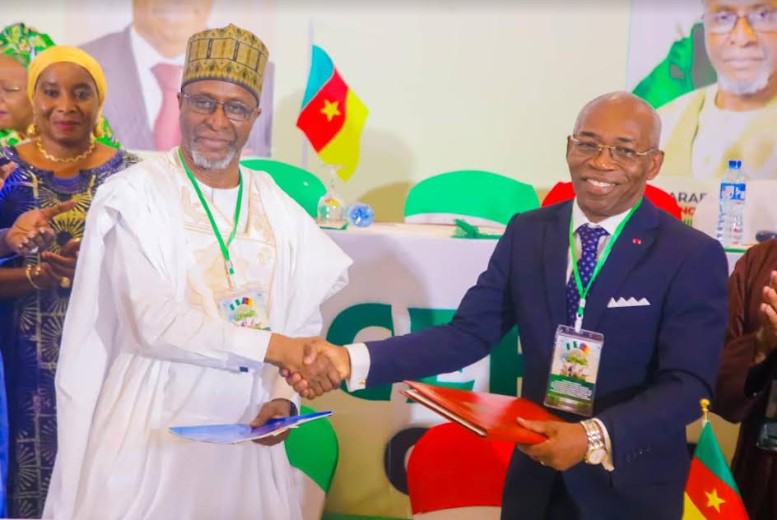News
Strike: Reps member tells FG to settle ASUU with Abacha loot
Konyinsola Dawodu
The Federal Government has been urged to use part of the recently returned $23,439,724 million Abacha loot to settle the Academic Staff Union of Universities (ASUU).
A member of the House of Representatives, Dachung Musa Bagos, have the advice while speaking on Channels Television’s Politics Today on Wednesday.
Bagos said, “We have pressing needs. Like now, ASUU has been on strike, and the government is trying to settle those issues.
“As a representative of the people, if I have to argue where those funds should be channelled to on the floor, I will say, ‘Why can’t you channel this fund to ASUU so that most of the youths that are at home would go back to school?’ But some of the areas we feel that the executive is channelling those funds are not the immediate needs of Nigerians.
“This is my third year in the National Assembly, we have never discussed any of the recovered loot. We just sit down and we hear that the executive recovered loot and allotted the same to projects that they so desire.
“We believe that when we discuss these issues at the National Assembly, we appropriate those funds according to the needs of Nigeria, it is going to go a long way; not just the executive looking at it and alloting it (the fund) to what they feel it should be. The constitution has given us that right,” he added.
Nigerian NewsDirect reports that Nigeria and the United States of America (USA) on Tuesday, signed an agreement for the repatriation of $23,439,724 recovered funds said to have been looted by the late General Sani Abacha.
ASUU has been on strike since February to press home its demands which include improved welfare, revitalisation of public universities, and non-payment of university revitalisation funds, amounting to about N1.1 trillion, among others.
Meanwhile, all efforts by the government to make the union end the strike have proved abortive as the government insists it does not have enough funds to settle the lecturers.
News
FG agency blames multiple taxes, others for high cost of goods


The Federal Competition and Consumer Protection Commission has released findings from a comprehensive investigation into the factors contributing to the relentless increase in consumer costs.
The Director of Surveillance and Investigation Mrs B. A. Adeyinka, said this while briefing journalists during a market surveillance to enforce prices today in Masaka Markets, Nasarawa State.
Adeyinka explained, “We’ve conducted extensive interviews with marketing executives and sellers across various sectors. Despite government efforts to stabilise the currency, prices remain high.
“Our findings point to a complex web of factors, including multiple layers of taxation and transportation costs, driving prices up. The cost of transportation is a significant burden on the sellers, and this cost is inevitably passed on to the consumer.
“For instance, a product that once cost N15,000 now sells for N50,000. This drastic increase is largely due to higher transportation expenses, the rising cost of pesticides, and security concerns in certain areas.
“Our first step is to compile a report on the multiple taxes affecting the market and advise the government on potential solutions. We aim to unlock the market by reducing these taxes, thereby easing the financial burden on both sellers and consumers.”
The FCCPC as part of its campaign for compliance sealed 4U Supermarket Wuse 2 on Thursday for breaching price and quality standards.
Speaking on Thursday, the acting Chief Executive Officer of FCCPC, Adamu Abdullahi, stated that the commission would continue the price enforcement in other states.
On his part, the executive chairman of the market, Gimbal Salasi said the market executives were working to ensure hitch-free market operations and price regulations in the market.
News
Cameroon restates commitment to partner Nigeria on forestry, wildlife conservation


News
New World Bank financing tools receive funding boost


New financial instruments designed to boost lending capacity and enable the World Bank Group (WBG) to take on more risk for shared global challenges have received a significant endorsement.
The World Bank Online Media Briefing Centre communicated this in a statement, a copy of which was obtained by the News Agency of Nigeria (NAN) on Saturday in Abuja.
The statement said 11 countries announced commitments on Friday for the Portfolio Guarantee Platform, hybrid capital mechanism, and new Livable Planet Fund totaling 11 billion dollars.
“The WBG’s unique leveraging capability enables the resources pledged to hybrid capital and the Portfolio Guarantee Platform to be multiplied six to eight times over 10 years.
“Under certain conditions, the leverage amount could reach tenfold.
“The resources pledged today could provide up to 70 billion dollars in urgently needed funds, which can be deployed to address cross-border challenges and advance development goals.”
It said Belgium, France, Japan, and the U.S. pledged to the Portfolio Guarantee Platform, while Denmark, Germany, Italy, Latvia, the Netherlands, Norway, and the UK made commitments to hybrid capital.
“Japan is committed to providing the first contribution to the new Livable Planet Fund.”
The statement quoted Ajay Banga, WBG President, as saying, “We worked hard to develop these new financial instruments that boost our lending capacity, multiply donor funds, and ultimately allow us to improve the lives of more people.
“The generosity of these countries is both an endorsement of the progress we have made to reform the bank and a sign of their shared commitment to development globally.”
It quoted Vincent Van Peteghem, Deputy Prime Minister and Minister of Finance, Belgium, as saying that Belgium was delighted to provide a 70 million dollar Portfolio Guarantee to the World Bank’s Global Solutions Accelerator Platform.
“Belgium strongly supports the WBG’s new vision to create a world free of poverty on a livable planet.
“This contribution will help to expand the bank’s lending capacity to assist International Bank for Reconstruction and Development (IBRD) clients address global challenges.
“Such challenges include pandemic prevention and preparedness, including health system strengthening and climate change, as well as biodiversity.”
The statement quoted Andrew Mitchell, Deputy Foreign Secretary and Minister for Development and Africa, UK, as saying,
“If the world is serious about shifting the dial on poverty and climate change, we need to put our money where our mouth is; the World Bank’s efforts to mobilise extra funds do just that.
“Our pledge of 100 million pounds for hybrid capital, which will unlock one billion pounds of additional financing capacity over the next decade, will turbocharge our ability to tackle urgent global problems and deliver real impact.”
The statement said the WBG had implemented a series of reforms and developed innovative financial instruments as part of the Capital Adequacy Framework review, which was recommended by the G20 Expert Group.
It said the reforms include adjusting the loan-to-equity ratio to secure 40 billion dollars over 10 years from the IBRD’s balance sheet and increasing the bilateral guarantee limit by 10 billion dollars.
“Others are working to maximise callable capital benefits by publishing a detailed report for rating agencies to better assess its potential value and the bank’s financial capacity.
“Also introducing hybrid capital, giving shareholders and partners an opportunity to invest in bonds with special leveraging potential.”
The statement said another reform was developing the Portfolio Guarantee Platform which provided a shared approach to risk that would make the bank’s financing more widely available.
“Also, launching a Livable Planet Fund that enables governments’, philanthropies’ and other partners’ contributions to incentivise cooperation across borders and tackle shared challenges.”
The statement said the WBG had taken the additional steps to develop IBRD 50-year loans at no additional cost for borrowers.
It said the loans would be utilised for projects that provide cross-border benefits.
“Additionally, we created a system to reduce interest rates for projects that address global challenges, which will be partially funded through the Livable Planet Fund.”
-
Finance3 months ago
Court orders Sen. Victor Umeh to repay N136m bank debt to AMCON
-



 Abuja Update2 months ago
Abuja Update2 months agoUNDP, FG partnership needed to achieve inclusion, equity- Minister
-
Abuja Update4 weeks ago
Banks drive stock market performance with N147bn gain
-



 Infotech3 weeks ago
Infotech3 weeks agoWorld Backup Day: NITDA urges Nigerians to ensure backup of data
-
capital market2 years ago
Rt.briscoe, FBNH, Others halts negative performance of stock market
-



 Health2 weeks ago
Health2 weeks agoImmunisation: FG, GAVI seek synergy with Sokoto Govt.
-
Infotech1 week ago
Forex for Beginners: Unveiling the currency exchange and how to trade it
-
Submission Guidelines4 months ago
CALL FOR SUBMISSIONS: POETRY COLUMN-NND






